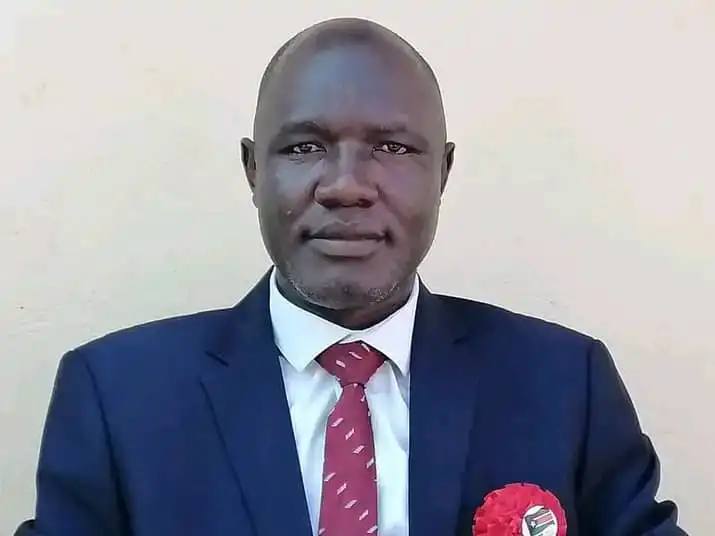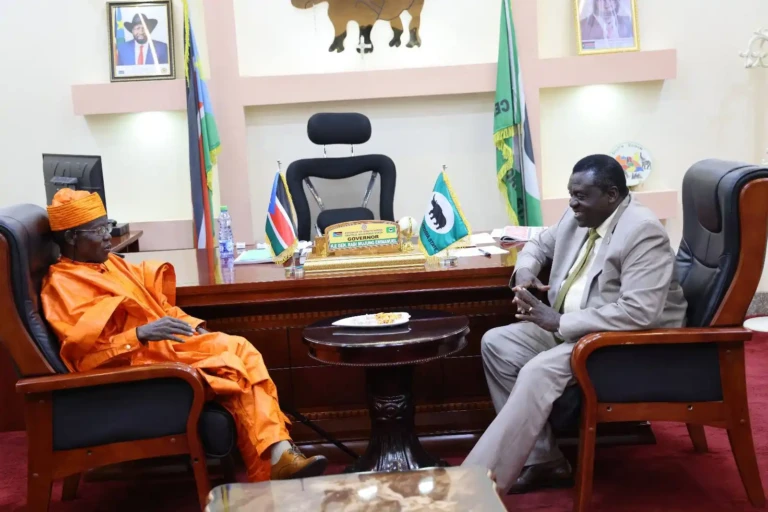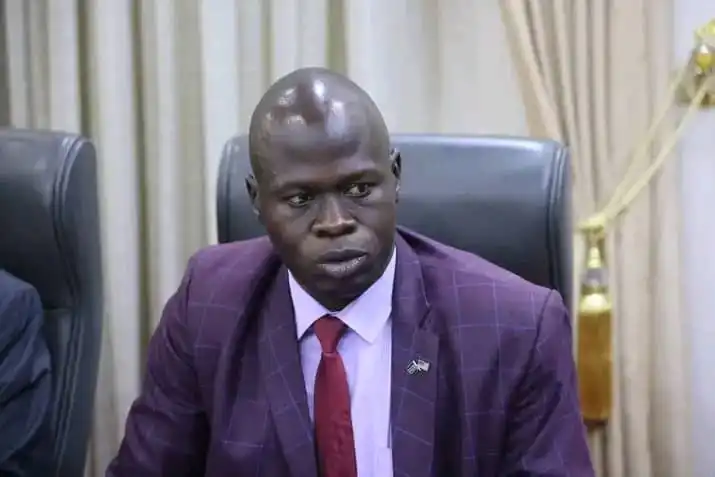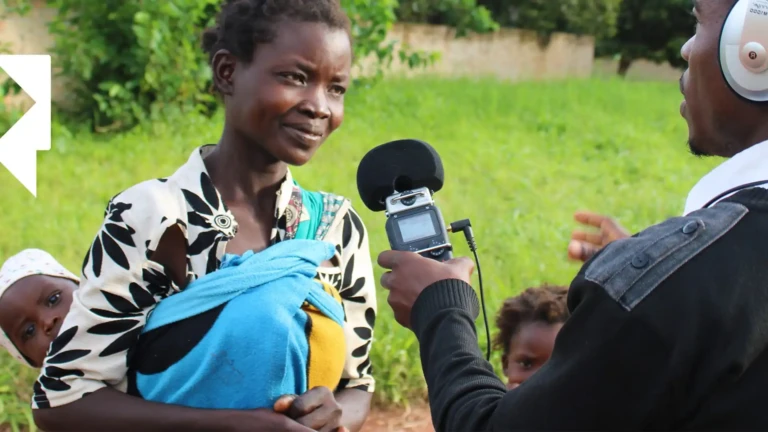![[OPINION] – South Sudan’s Fragile Peace in Crisis [OPINION] – South Sudan’s Fragile Peace in Crisis](https://radioyei.org/wp-content/uploads/2025/08/batali-gabriel-modi-1024x1024.webp)
Batali Gabriel Modi is a former freedom fighter in South Sudan’s 21 year struggle for independence. He is a passionate advocate for peace and a united South Sudan, working closely with displaced communities and youth in the South Sudanese diaspora. He holds an MBA in Leadership and Theology from Faith Leads University, Florida.
Opinion: South Sudan’s Fragile Peace in Crisis: Tumaini Declared Dead Amid Intensifying Political Power Struggles and Security Threats
By Batali Gabriel Modi More than a decade after gaining independence, South Sudan remains caught in a cycle of fragile peace and political mistrust. Though the guns are largely silent in many parts of the country, the foundations of the 2018 Revitalized Peace Agreement are increasingly under pressure. The recent political tensions surrounding First Vice President Dr. Riek Machar Teny a principal signatory to the peace accord now threaten to shake what little progress has been made.
Crisis Analysis: Recent Developments at a Glance
+Tumaini Peace Initiative Declared Dead: Senior Presidential Advisor Kuol Manyang Juuk has officially declared Tumaini “dead” signaling the government’s abandonment of this community-driven reconciliation effort.
+Clashes in Yei and Morobo: Dislodging of SPLA-IO cantonment sites in Panyume and attacking their new positions have reignited hostilities, with opposition forces claiming territorial gains.
+Targeted Killings and Ambushes:
A Kenyan engineer working for Holy Trinity Parish, Morobo Catholic Diocese of Yei was killed; vehicle burned.
In Maridi (WES), a driver was similarly killed, and his vehicle torched.
+Border Tensions: Confrontation between SSPDF and UPDF forces in Kajokeji has heightened cross-border insecurity.
+Political Uncertainty: SPLM-IO internal divisions and exclusion of holdout groups like NAS increase the risk of a wider collapse of the peace deal.
Political Isolation of Machar Signals Dangerous Power Struggle
Reports from Radio Tamazuj (July 29, 2025) and Sudan Tribune reveal that First Vice President Dr. Riek Machar Teny, a principal signatory to the peace accord and leader of SPLM-IO, is effectively under house arrest in Juba. His movements have been increasingly restricted amid growing internal rebellion within the SPLM-IO, with allegations of external pressure to unseat him. Analysts warn that such maneuvers could fracture SPLM-IOa cornerstone of the fragile unity government.“Targeting Machar without meaningful political dialogue is not just an attack on one manit’s a direct hit on the peace deal itself,” a Juba-based political analyst told Radio Tamazuj on July 29, 2025. “This power struggle risks reigniting old hostilities at a time when national cohesion is already dangerously weak.”
Failed Rome Talks Deepen National Fragmentation
The Sant’Egidio-ledRome Talks, launched to bring holdout factions like the National Salvation Front (NAS) of Gen. Thomas Cirillo into the peace process, have once again stalled. Despite strong support from the Vatican and promises from both sides, the negotiations have repeatedly collapsed because the government in Juba has shown little willingness to make meaningful concessions that would reassure these groups of their political safety and inclusion. As talks falter, NAS has continued to consolidate its military and political influence in Central Equatoria, controlling rural areas and maintaining active bases. Other factions under the South Sudan Opposition Movements Alliance (SSOMA) have also refused to disarm, fearing betrayal if they lay down their weapons without a concrete political deal. Without renewed commitment to inclusive dialogue, the stalled Rome Talks risk transforming what was meant to be a bridge to peace into a launchpad for renewed, more coordinated conflict.Tumaini Peace Initiative Declared Dead: A Blow to Grassroots Reconciliation
On August 1, 2025, Senior Presidential Advisor Kuol Manyang Juuk publicly declared the Kenya led Tumaini Peace Initiative “dead”, calling it constitutionally incompatible with South Sudan’s 2018 Revitalized Agreement (R‑ARCSS). He argued the initiative attempted to override the existing peace framework by incorporating just a fraction of its protocols, reversing the original intent of the process Formerly hailed as a symbol of inclusive dialogue and community reconciliation, Tumaini, which brought together ex‑combatants, women, youth, and local leaders to address trauma and foster coexistence has now been abandoned by the very government that once endorsed it. Its collapse erodes one of the few bridges between grassroots healing and national reconciliation. A local church leader in Yei, who preferred anonymity, described the impact in stark terms.“This declaration feels like abandoning the people. Without community peace, no national peace can survive.”This poignant comment underscores the existential risk facing communities: with Tumaini defunct, many are left without mechanisms for dialogue or healing making renewed cycles of mistrust and retaliation more likely.
Why This Matters
+Loss of Community Agency: Tumaini was a faith based, locally driven platform for healing and reintegration. Its demise removes one of the few inclusive forums bridging conflict affected communities with peacebuilders.
+Dangerous Precedent: Declaring Tumaini dead signals a broader rejection of alternative peace architectures outside formal politics at a time when elite-level peace talks remain deadlocked.
+Worsening Fragility: With local forums dissolved, community tensions may escalate. In regions like Yei and Morobo and partly in Western Equatoria, the space for nonviolent conflict resolution is shrinking not expanding.
Violence Returns: Road Ambushes and Cross Border Clashes
Insecurity is surging in Central Equatoria and Western Equatoria. Opposition forces claim progress in Yei and Morobo, while civilians bear the brunt of renewed ambushes.+In Morobo, unknown gunmen killed a Kenyan engineer contracted by the Catholic Diocese of Yei to build facilities for Holy Trinity Parishin Morobo. His vehicle was set ablaze on July 31, 2025.
+In Maridi near Mani’bu (WES), a driver was murdered and another vehicle torched in a separate incident on July 31, 2025.
+Meanwhile, on the Uganda–South Sudan border, armed clashes erupted between SSPDF and Ugandan forces (UPDF) in Kajokeji. The confrontation exposes a dangerous security vacuum and the potential for regional destabilization.
Challenges Ahead: Elections, Economy, and Mistrust
With national elections on the horizon (tentatively planned for December 2026, though delays are likely), tensions are mounting. The National Democratic Institute (NDI) and The Sudd Institute have highlighted concerns over electoral preparedness, the lack of a permanent constitution, delays in judicial reform, and restricted civic space (NDI Report, 2024; Sudd Institute Brief, March 2025). Intercommunal violence continues in Jonglei, Warrap, and Upper Nile states, fueled by competition over land and cattle, coupled with weak local governance. The UN Panel of Experts on South Sudan (2024) noted that sub-national conflicts now cause more civilian displacement than conventional warfare. Meanwhile, South Sudan’s economy remains heavily reliant on oil (over 90% of public revenue), making it vulnerable to global price shocks, corruption, and poor infrastructure. Food insecurity remains widespread, with over 7 million people in need of humanitarian assistance, according to the World Food Programme (WFP), 2025 Outlook.Conclusion: A Fragile Nation on the Edge of Peace or Chaos”
The declaration of Tumaini’s death, escalating clashes in Yei and Morobo, cross-border tensions in Kajokeji, and renewed political isolation of Dr. Riek Machar collectively paint a troubling picture: South Sudan’s fragile peace is unravelling at both the elite and grassroots levels. True peace requires courage:+Rebuilding trust among signatories
+Bringing holdouts to the table without preconditions
+Empowering grassroots initiatives like Tumaini
+Preventing border conflicts that could draw in neighbors
Declaring such efforts “dead” does not kill the yearning for peace in the hearts of ordinary South Sudanese. Rather, it underscores the urgent need for inclusive dialogue, political humility, and genuine investment in local reconciliation. Without these, the country risks sliding back into chaos, undoing years of struggle and sacrifice for independence. South Sudan stands at a crossroads: either leaders choose to listen to the people and protect hard won peace, or history will repeat itself, plunging the nation into deeper cycles of conflict. The choice, and the responsibility, lies squarely in the hands of those in power.Batali Gabriel Modi is a former freedom fighter in South Sudan’s 21 year struggle for independence. He is a passionate advocate for peace and a united South Sudan, working closely with displaced communities and youth in the South Sudanese diaspora. He holds an MBA in Leadership and Theology from Faith Leads University, Florida.
DISCLAIMER
Access Radio® publishes opinion articles as a platform for diverse and independent perspectives. The views expressed are solely those of the author and do not necessarily reflect the views of Access Radio® or its editorial team. We welcome thoughtful contributions from our listeners and readers. To share your opinion, email news [at] radioyei.org. Submissions may be reviewed before publication.Discover more from Access Radio Yei News
Subscribe to get the latest posts sent to your email.






